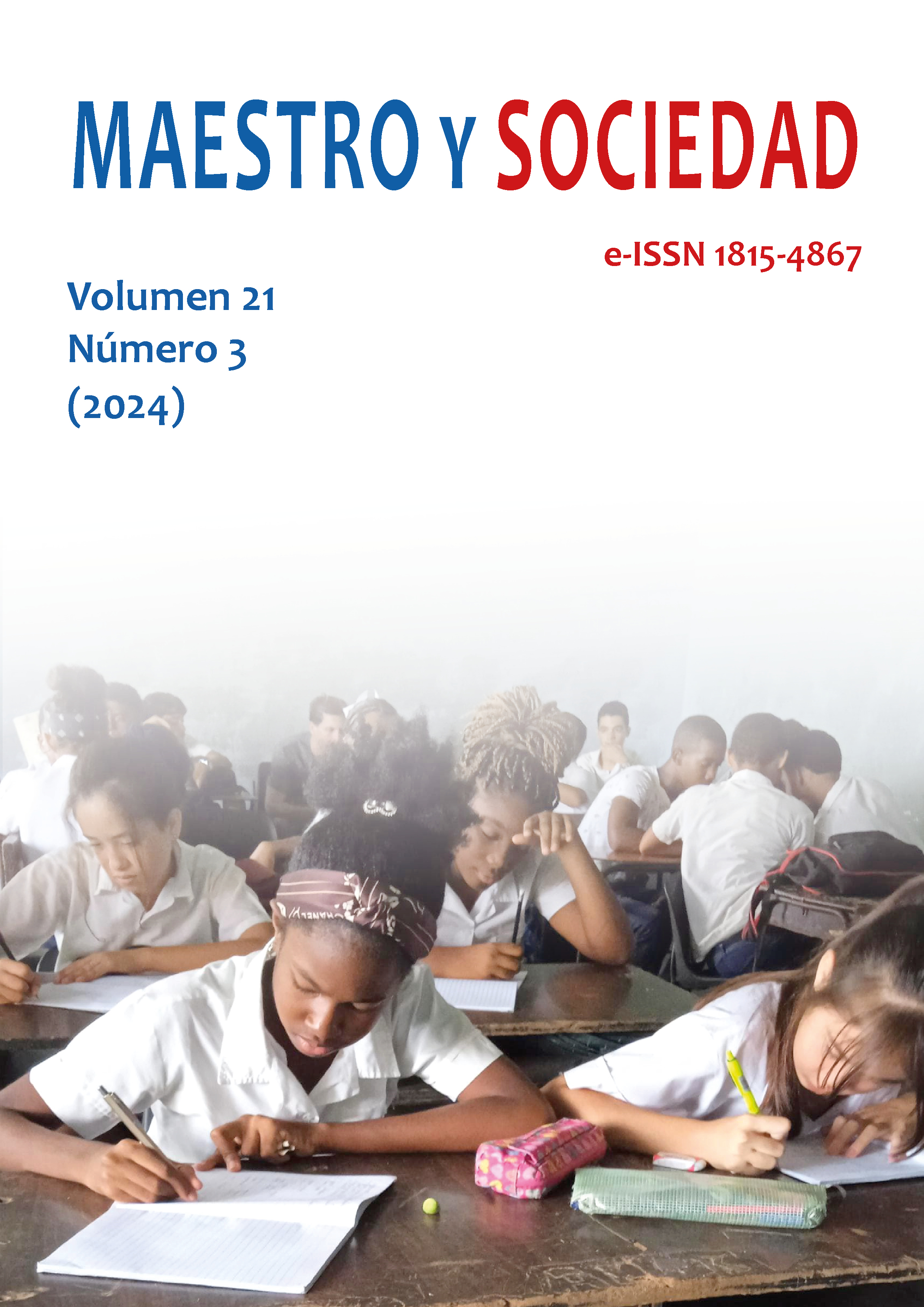The role of higher education in promoting tax awareness and tax compliance in Ecuadorian society
Keywords:
Tax awareness, tax compliance, higher education, Ecuadorian societyAbstract
Introducción: The socioeconomic changes of the 21st century in Ecuador have reconfigured citizen perception of the tax system, highlighting the importance of higher education in promoting tax awareness and tax compliance. Consequently, this study investigates the role of Ecuadorian universities, focusing on the Milagro´s State University, in preparing future professionals for their tax obligations. Materials and methods: Using a qualitative and quantitative and descriptive approach, the perceptions of 216 students from the Accounting and Auditing, Economics and Business Administration majors were analyzed through surveys based on a Likert scale. In addition, interviews were conducted with six teachers to delve deeper into teaching methods and the inclusion of tax content in the curricula. Results: The findings revealed an awareness of the importance of paying taxes and the consequences of tax evasion, although deficiencies were also identified in the preparation to comply with tax obligations. Interviews with teachers highlighted the need to update tax content and adopt more effective teaching methodologies. Discussion: The research points out the importance of comprehensive tax education that combines theoretical knowledge with practical applications, adapted to current socioeconomic realities. Collaboration between universities, government and the private sector is crucial to achieve this goal. Conclusions: Higher education in Ecuador plays a fundamental role in promoting tax awareness and tax compliance, making it necessary to strengthen curricula and teaching methodologies in taxation, which will allow future professionals to be better prepared for their roles as responsible taxpayers and committed citizens, thus contributing to the sustainable development of the country.
References
Andino, A. M., Arias, U. D., Carrasco, V. C., Carrillo, M. P., Carpio, R. R., Chiliquinga, C. D., & A., T. E. (2012). Una nueva política fiscal para el Buen Vivir: La equidad como soporte del pacto fiscal. Ediciones Abya-Yala.
Araneda-Guirriman, C. A., Rodríguez-Ponce, E. R., & Pedraja-Rejas, L. M. (2016). Relación entre el financiamiento fiscal, la calidad del cuerpo académico y la retención de estudiantes universitarios en Chile. Formación Universitaria, 6(6), 55-64.
Carvalho, C. (2017). Teoria de la decision tributaria. Ediciones Olejnik.
Espinosa, A. M., & Sarmiento, A. (2020). Factores determinantes de la probabilidad de incumplimiento tributario en América Latina. Revista Economía y Política(31), 1-17. https://doi.org/10.25097/rep.n31.2020.02
Estévez-Torres, Z. E., & Rocafuerte-González, J. E. (2018). La conciencia tributaria en el proceso de recaudación de impuestos en Santa Elena. Clío América, 12(18), 4-10.
García Restrepo, J. E. (2024). Estrategia tributaria. Elementos en el impuesto de renta de las sociedades. Ecoe Ediciones.
González-Vasco, C., Delgado-Rodríguez, M. J., & de Lucas-Santos, S. (2019). Cumplimiento fiscal y bienestar: Un análisis con perspectiva mundial. RETOS. Revista de Ciencias de la Administración y Economía, 9(18), 344-361. https://doi.org/10.17163/ret.n18.2019.10
Masbernat, P. (2017). Una tesis sobre la naturaleza y las características de la obligación tributaria. Díkaion Revista de Fundamentación Jurídica, 26(2), 225-255. https://doi.org/10.5294/dika.2017.26.2.2
Mendieta-Andrade, P., Calle-Santana, J., Vintimilla-Paredes, L., & Riera-Ceballos, C. (2021). Las universidades como agentes de fortalecimiento de la cultura tributaria: caso NAF de la UCACUE. ComHumanitas: Revista Científica De Comunicación, 11(3), 177-194. https://doi.org/10.31207/rch.v11i3.275
Mendieta-Andrade, P., Ordoñez-Parra, J., & Cuadrado-Sánchez, G. (2020). El impacto de las prácticas pre profesionales en la cultura tributaria de los estudiantes de la Universidad Católica de Cuenca. Boletín de Coyuntura(24), 31-39.
Ortega, S., & Nava, R. (2021). Factores del control conductual percibido en personas físicas de México sobre el cumplimiento de obligaciones fiscales. El efecto de la educación superior. Actualidad Contable Faces, 24(43), 116-149. https://doi.org/10.53766/ACCON/2021.43.06
Pirela Espina, W. A. (2022). Influencia de la educación universitaria en la formación de la cultura tributaria del contador público. Revista Científica "Visión de Futuro", 26(1), 1-21.
Quintanilla Gavilánez, J. (2014). La universidad en la cultura tributaria. RETOS. Revista de Ciencias de la Administración y Economía, 2(3), 105-114.
Rosas Prado, C. E., & Castro Ascencio, O. F. (2016). Programa para incrementar la conciencia tributaria. UCV-HACER. Revista de Investigación y Cultura, 5(2), 12-16. https://doi.org/https://orcid.org/0000-0002-7924-3157
Sabry, F. (2024). Dominar la política fiscal. Navegar por el laberinto fiscal para lograr el empoderamiento financiero. Mil Millones De Conocimientos.
Silva Laya, M., D'Angelo, N., & García, E. (2020). Dilemas y desafíos de la equidad en Educación Superior: El caso de la UACM. Universidad Iberoamericana A.C.
Trujillo-Bardón, R., & Torres Cáceres, F. (2022). Formación de conciencia tributaria en estudiantes universitarios: una estrategia con efecto replicador en la ciudadanía. Journal of Economics, Finance and International Business, 6(1), 103-125. https://doi.org/10.20511/jefib.2023.v6n1.1803
Published
How to Cite
Issue
Section
License
Copyright (c) 2024 Gloria Angélica Valderrama Barragán, Edwin Favio Valderrama Barragán, Víctor Viteri-Miranda, Jacqueline Regatto-Bonifaz

This work is licensed under a Creative Commons Attribution-NonCommercial-NoDerivatives 4.0 International License.
This journal provides immediate open access to its content, based on the principle that offering the public free access to research helps a greater global exchange of knowledge. Each author is responsible for the content of each of their articles.



























 Universidad de Oriente
Universidad de Oriente 